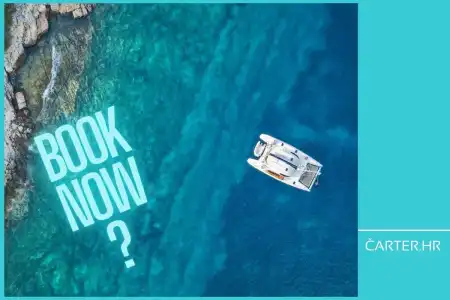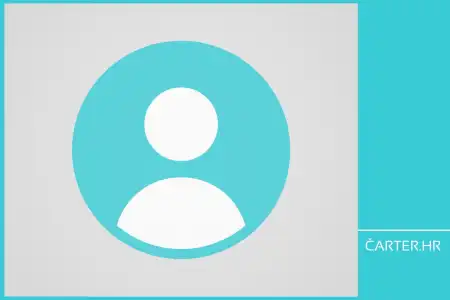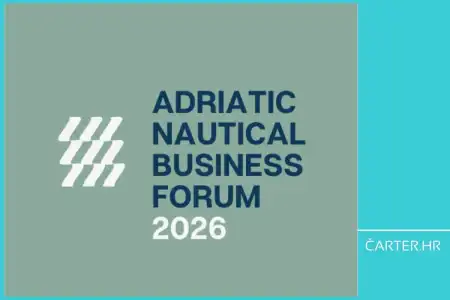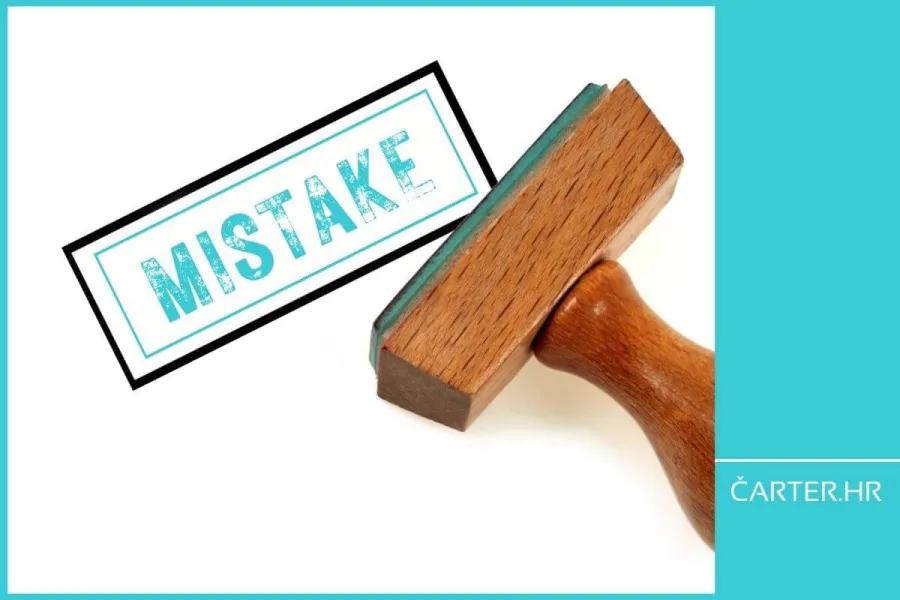
- 11.06.2025.
- News, Marketing, SEO, Social media
Yacht charter websites often end up looking the same: similar boats, identical descriptions, nothing new for the guest or the search engine. But you have a good offer, and Google still skips over you… Do you know which mistakes you're making that are holding you back? Here are some practical tips on how to fix them.
If you work in yacht charter, then you know how saturated everything is.
The same boat databases, similar photos, identical descriptions. Almost every site looks like the previous one, yet everyone expects theirs to end up at the top of Google.
But search engines do not favor copies.
They look for clear information, relevant content, and real usefulness for the person searching for a boat rental.
SEO is a great tool for getting direct inquiries.
If you run a yacht charter company, work in marketing, or are responsible for sales and feel like Google keeps skipping over you, this text is for you.
We present the most common mistakes and suggestions on how to fix them.
1. Website without focus – you offer everything, but highlight nothing
What’s the problem:
Many yacht charter companies want to be everything to everyone. They offer sailboats, catamarans, motorboats, tours, transfers, service, dry docks, and even apartments.
The result? Google doesn’t know what exactly you offer. It doesn’t know what to “grab onto”. And if Google doesn’t know, neither will your guest.
Example:
A homepage with a generic headline like “Boat rental in Croatia – the perfect vacation on the Adriatic” helps no one. It offers nothing new, nothing specific.
The visitor doesn’t even know where you operate or what exactly you offer.
They don’t know if your fleet is in Trogir, if you’re an agent from Zadar, or a private boat owner from Dubrovnik. Are we talking about luxury catamarans, day trips, or bareboat sailboats?
Choose your primary offer and highlight it through text, titles, and navigation. That doesn’t mean other services disappear, but there is a clear focus.
Examples:
- Bareboat catamaran rentals from Biograd, with flexible departures
- Skippered sailboats from Šibenik, especially popular for family routes
- Specialized in bareboat catamaran rental from Biograd, ideal for experienced skippers
When that part is clear, the search engine knows how to position you. And the guest knows whether your website is worth staying on and considering an inquiry.
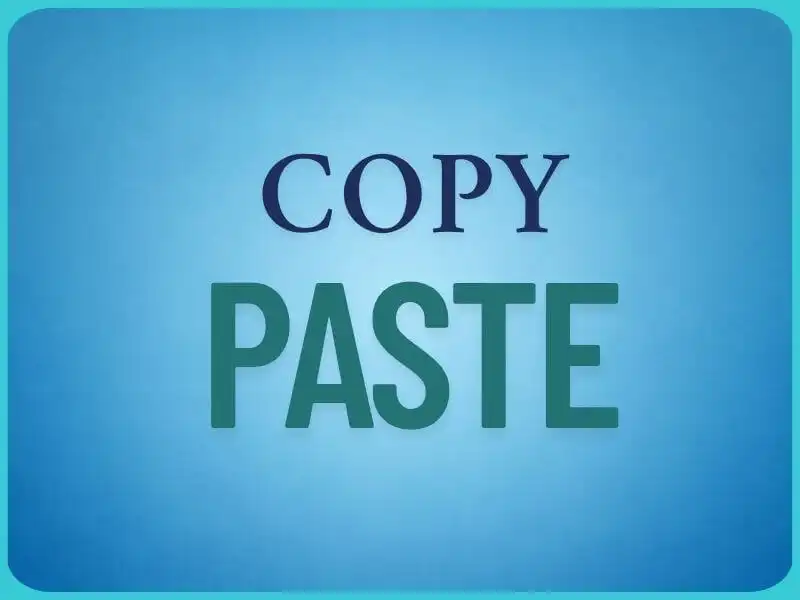
2. Texts that sound like they’re copy-pasted from an old brochure
What’s the problem:
Many yacht charter websites use the same sentences as they did ten years ago.
The texts are full of generic phrases and “experiences” that mean nothing to either the guest or the search engine, and they don’t answer users’ real questions.
Search engines don’t recognize that kind of content as valuable, and users simply skip it.
Example:
“Enjoy an unforgettable experience on the crystal-clear Adriatic with our fleet of top-quality boats.”
This or a similar sentence is used by almost everyone today. Text like that helps neither SEO nor sales. No one reads that content, and Google skips it.
What to do:
Imagine a potential guest sends an inquiry and asks you: “Which boat is best for us?” That’s the tone your text should have – clear, specific, informative.
Examples:
- Which boat models are the newest and when were they last refitted
- Which boats have 4 cabins and are ideal for two families
- Do you have boats with air conditioning and/or solar power
- What’s a typical route from your base and what can guests realistically see in 7 days
- What do you offer that other yacht charter companies in the same marina don’t
Write information that guests can’t find “just like that”.
Include the very things you know because you’re in the field and others aren’t. Google likes that – it recognizes such content as useful and prioritizes it.
3. Content doesn’t answer real user questions
What’s the problem:
Most yacht charter websites are reduced to a boat catalog.
There is no content to help someone who is just exploring what, where, and how they can rent a vessel.
There’s no blog, no guide, no answers to frequently asked questions. The guest is left without information, and the website doesn’t attract additional traffic.
Example:
Someone searches “what is APA in yacht charter” or “can you rent a boat without a skipper in Croatia”. If those answers aren’t on your site, the guest moves on. And your website misses the chance to appear in searches that happen every day.
What to do:
Add a section with useful content. You don’t have to write every week, but a few (technically well-optimized) articles can have a long-term impact.
Write what guests already ask you by email or phone, such as:
- Don’t need a skipper? These are the conditions for bareboat charter in Croatia
- Top 5 routes for weekly charter from Zadar, with recommendations for restaurants and anchorages
- APA and crewed charter – how does it really work?
With this, you’re not just offering information. You’re showing you know the business, understand the guests’ needs, and are building trust. Google recognizes this and ranks you higher than those who offer only a boat listing.
4. Technically neglected website
What’s the problem:
If the website runs slowly, isn’t mobile-friendly, or lacks a clean content structure, Google won’t rank it high.
This is a matter of basic functionality. Every technical error signals that the website isn’t reliable or useful.
Example:
The website takes 6 seconds to load on mobile. The main headline isn’t marked as H1. Images are so heavy they slow everything down. The visitor gives up, Google registers it, and your ranking drops.
What to do:
Review the technical state of the website at least once a year, especially before the season. Check the following:
- Loading speed using tools like Google PageSpeed Insights
- How the site looks and functions on mobile devices
- Whether the correct heading hierarchy is used (H1 for the page title, H2 for subheadings)
- Do images have descriptive ALT tags that Google can read
- Is there a sitemap, and is it submitted through Google Search Console
These are basic elements search engines actively monitor, and they shouldn’t be left for later. Without them, your site can hardly compete, no matter the content or design.
If you can’t check this yourself, leave it to a professional who knows how to fix it. This is basic website functionality that must be in order if you want to be visible.
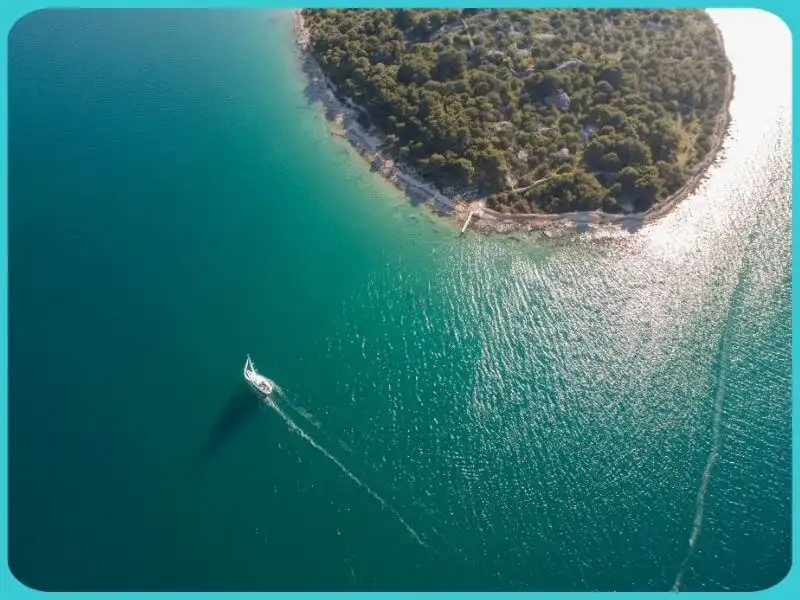
5. Boats without their own pages
What’s the problem:
When all boats are on the same page or in a price list or PDF catalog, and don’t have individual subpages with a unique URL, the search engine can’t index each model separately.
To Google, such a list appears as a single vague block of information, with no specific connection to individual user queries.
Example:
A guest searches “Lagoon 42 charter from Trogir”. That boat might be in your offer, but if it doesn’t have its own page with a clear title, description, and data, Google has nowhere to direct the user.
What to do:
- Each boat should have its own page with a unique URL.
- The page must include a title (e.g., “Lagoon 42 for charter from Trogir”), basic technical specifications, equipment descriptions, prices, availability, photos, and a contact form or inquiry button. If you also include a sample route, such as “7 days in central Dalmatia for families with children”, it further increases the SEO potential and user value.
This approach improves search engine ranking and makes it easier for potential guests to find exactly what they’re looking for, without extra clicks, wasted time, or unnecessary contacting just to get basic information.
6. Ignoring local terms and bases
What’s the problem:
Writing only “yacht charter Croatia” no longer brings concrete results. All yacht charter companies in Croatia are… in Croatia. And that’s too broad a term.
Google looks for specificity, and people are increasingly searching by location, like “charter boats Murter” or “catamaran rental Split marina”.
If you don’t use local names on your website, you won’t appear in such searches. If your base is in Zadar and that’s only mentioned at the bottom of the site, Google won’t figure it out on its own.
Example:
A guest searches “Sun Odyssey 449 rental Zadar”. That boat might be in your offer, but if it doesn’t say anywhere that it’s in Zadar, there’s a high chance Google will simply skip it and show the competition that’s more precise.
What to do:
- Include the names of marinas and towns where you actually operate – in titles, descriptions, image tags, and text. Not just “Dalmatia” but specifically: Biograd, Sukošan, Rogoznica, Pirovac, Trogir…
- Create a page for each base you operate from, with information relevant to the guest: how to get there, where to park, what’s nearby. Link the boats with locations.
- Instead of the general “Our fleet”, write “Catamarans for rent from marina Kornati, Biograd” or “Bavaria sailboats, Zadar base”.
Google will recognize such combinations as highly relevant for local searches. That way you’re not competing with everyone, but showing up precisely to those who are looking for what you have, where you have it. And that means higher-quality traffic and better chances of inquiries.

7. Poor visibility of your own website
What’s the problem:
If your website doesn’t show up among the top results when someone searches your name, boat model, or base you operate from, you’re losing control over how your offer is presented.
In that case, information about you comes from other sources, and potential guests usually don’t end up on your website.
Example:
A guest types the name of the boat they want to book, which you rent. Booking portals and general info sites appear first, and your site is a few places down, if it shows up at all.
Invest in the visibility of your domain so you become the first source of information about your own offer.
What to do:
- Use boat names in titles and URLs (e.g. /charter-lagoon-42-biograd)
- Add guest reviews directly on your website
- Regularly update content, especially fleet details, routes, and prices
- Link your website with social media, add links and share content that leads back to your site
The goal is for people to reach you directly. Every click that lands on your website gives you more control, more profit, and more independence.
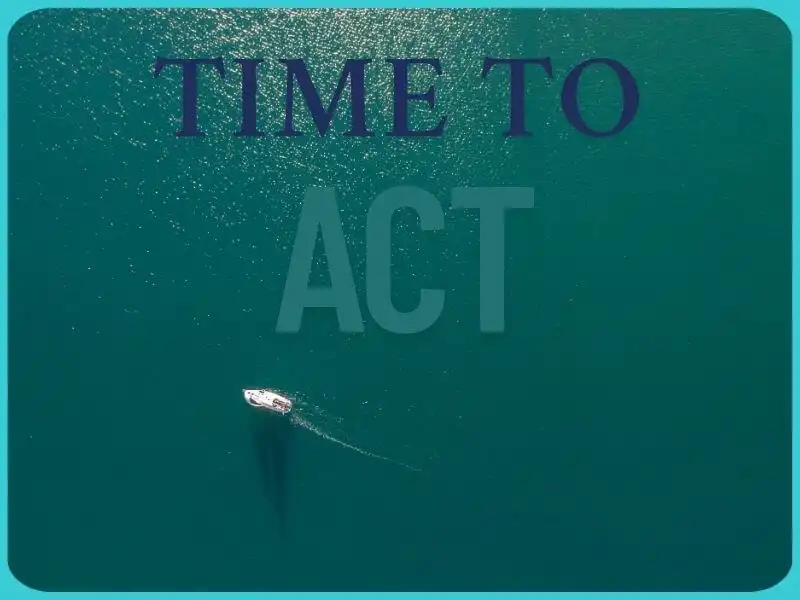
If all this sounds familiar, it’s time to act
If you recognized yourself in at least one of these points, that doesn’t mean you’re doing something wrong.
Most yacht charter companies in Croatia face similar challenges – the market is overcrowded, everyone has a similar fleet, and most invest more in ads than in their own content.
Visibility is not reserved for big brands nor is it something someone else will “fix for you”.
SEO is a tool that helps guests find you before someone else, without intermediaries and without extra costs per inquiry.
You don’t have to fix everything at once. It’s enough to look at your homepage through the eyes of a guest seeing you for the first time.
- Does your website have a clear focus?
- Can every offer be found and ranked as a separate result?
- Do you have content that answers real questions?
If not, that’s where to begin.
If you want your website to actually work for you, but don’t know where to start, ask us. SEO doesn’t have to be complicated, but it does have to be done right.
If you’d like to occasionally receive practical tips like these, subscribe to our newsletter.
Categories of trends
- News
- Sale
- Marketing
- SEO
- Web design
- Social media
- Technology
- Regulations
- Management
- Education
- Finances
- User experience
Newsletter
Sign up for the newsletter and receive the latest trends and tips straight to your inbox



